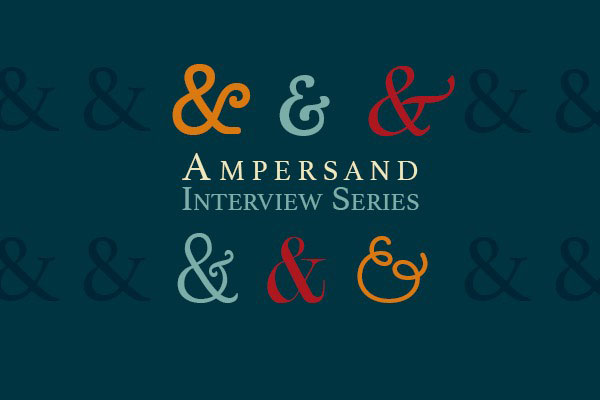
In the latest Ampersand Interview, Creative Nonfiction Editor Kerry Neville spoke with Wendy Rawlings about her new collection of stories Time for Bed, advice for new writers, and replacing an old mattress that once belonged to Mark Strand. Rawlings’ essay “A Bad Sort of Industry” was published in Arts & Letters Issue 38.
Kerry Neville: Can you talk about your life as a writer? What got you started? Has your approach to craft changed? What keeps you writing?
Wendy Rawlings: This might be macabre, but I had a favorite cousin who lived in Connecticut, a couple of hours from Long Island, where I grew up. This was in the days before the Internet, and we wrote each other long letters in code that only we could decipher. She was stricken by leukemia and died when we were thirteen. Neither my family nor I knew how to process the grief, but my mother gave me a journal and told me to write in it whenever I felt sad or lonely. Thus, a writing life began.
Perhaps because I got started that way, I have always treated writing as intensely personal and have rarely (maybe never?) written anything “just for fun” or as a “formal challenge” (I put these in scare quotes because they’re things I’ve heard writers say). That’s not to say I haven’t had fun or experimented with form, but I’m always animated first by a need to explore a topic or emotion or experience that has troubled or been deeply important to me. That’s what keeps me writing. My approach to craft has changed in that I think I’m more aware, even in the early stages of a piece of writing, of needing to find a connection between form and content that makes intuitive sense to me. I used to see form and content as separate entities that I kind of needed to smash together. I don’t think that way anymore.
KN: You’ve written both a novel, two collections of short stories, as well as essays. Can you talk about the differences in your approaches to writing them (form and genre) and perhaps what remains the same?
WR: Fundamentally, I think of myself as a writer of sentences. My husband, who is a poet, says that interest in small units of language makes me more like a poet than like a novelist. The only thing that really interested me about writing a novel (and I’ve only written one published novel) is the narrative voice and how to sustain it. I love writing stories and essays because I can achieve what I think of as a kind of Persian Rug Perfection. A Persian rug is only a few feet long, but in it you can keep finding new designs and patterns and elaborations. And maybe the one flaw that makes it the product of human hands. I don’t think I’m really a novelist, but publishing one was on my bucket list, so there you have it. I chased the voice of the novel down until I could hear and follow it.
KN: Can you talk about the process of collecting together the individual stories in Time for Bed? Did you write any or all of the stories with the greater collection in mind? Or, if not, how did you select the individual pieces to include?
WR: Earlier iterations of this book had different titles; at one point it was called something like Varieties of Religious Experience in the Tri-State Area. I wanted the book to be kind of funny and to push up against some taboos that interested me, especially taboos around sex. I was also interested in how blended families navigate relationships. There’s a story in Time for Bed in which a woman and her new stepbrother (who is much younger than she is) end up getting involved with each other sexually. Blended families can be difficult to navigate for adult children.
I did have a few other stories in the collection that were more satirical and over the top. In one, a tampon and a maxi-pad sit on a dock and have a conversation about being roofied. My editor at LSU Press, Michael Griffith, suggested I replace those because they stood out as departing too much from the tone of the book. I think he was probably right about that.
KN: What advice would you give to beginning writers who are thinking of putting together their own collections or starting a novel?
WR: Ooh, that’s a good question! Based on my own experience, I’d say, first, to try to be as fearless and authentic as possible. I wasted a lot of time trying to sound like someone else, and the results were kind of generic. I was looking to see what I thought a novel should sound like. That was the wrong approach. I think the right approach is to go look at someone who makes art in another discipline and see how fearless she/they/he is/are. One of my idols in this regard is the visual artist Kara Walker. She made this giant sphinx out of white sugar and gave it her own face. I won’t go into the symbolism, but whenever I am afraid to give myself permission to make a piece of writing that is big or transgressive or strange, I think of Walker’s work. Same with a musician like Philip Glass or Jay Z. For some reason, visual artists and musicians inspire me most, because their work is big or loud or both.
KN: What is the best thing (related to writing) that you have ever spent money on?
WR: You mean the best thing I’ve bought with money I made from my writing? In 1998, I think it was, I was awarded second place in the Atlantic’s Student Writing Competition. At that point in my life I was sleeping in a hand me down bed I was told had once belonged to the poet Mark Strand. It was so worn out that it dipped in the center, causing my boyfriend and me to roll toward each other as we slept. With the $500 from the Atlantic, I was able to buy a new Serta mattress. When you’re in graduate school and broke and have no health insurance, a new bed is the best thing in the world.
KN: What’s next for Wendy Rawlings?
WR: I’m working on an essay collection called Crying in Public that takes as its starting point a trip I took to visit my cousins in London that happened to coincide with the days after Princess Diana died. The public mourning was just staggering. Another essay explores the kind of public freakouts so many of us had during and after 9/11. So that’s in the works. Then I think I really would like to try an idiosyncratic inanimate object narrator like James Hannahan does in the novel Delicious Foods. Like narrate from the POV of a tampon. Maybe!
Wendy Rawlings is the author of a novel, The Agnostics, and two collections of stories, Time for Bed and Come Back Irish. Her work has most recently appeared or is forthcoming in Arts & Letters, Creative Nonfiction, Kenyon Review, and the Pushcart Prize anthology. She’s a professor in the creative writing program at the University of Alabama.
